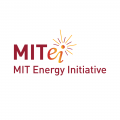
Monday, November 9
1:00-2:30 pm ET
Register
Across developing Africa, Asia, and Latin America, billions of people suffer from the lack of safe and reliable energy—impacting literacy and education, water and food supply, communication, healthcare, and the economy. But inspiring leaders, entrepreneurs, and everyday citizens are standing up to bring power to their people.
In this webinar, Scott Tinker will discuss his journey in making the Switch On documentary. Ernest J. Moniz, former U.S. Secretary of Energy and founding director of MITEI, and Robert Stoner, deputy director of science and technology at MITEI, will join Tinker in a fireside chat to highlight key topics addressed in the film and related MITEI research. Together, they will change the way you look at energy and the developing world.
Attendees are encouraged to watch Switch On prior to the webinar.
For more energy education resources, visit SwitchOn.org.
About the speakers
Scott Tinker is the director of the Bureau of Economic Geology, the State Geologist of Texas, and the Allday Endowed Chair Professor at the University of Texas. He co-produced and hosted the award-winning energy documentary Switch (2012) and its sequel Switch On (2020). Switch has been screened in over 50 countries to more than 12 million viewers and is used in courses on thousands of K-12 and college campuses. In response, Tinker helped form the nonprofit Switch Energy Alliance, dedicated to nonpartisan energy education. He has served as president of the American Geosciences Institute, the Association of American State Geologists, the American Association of Petroleum Geologists, and the Gulf Coast Association of Geological Societies.
Ernest J. Moniz served as the thirteenth United States Secretary of Energy from 2013 to January 2017. As Secretary, he advanced energy technology innovation, nuclear security and strategic stability, cutting-edge capabilities for the American scientific research community, and environmental stewardship. He placed energy science and technology innovation at the center of the global response to climate change and negotiated the Iran nuclear agreement alongside the Secretary of State. Moniz joined the MIT faculty in 1973 and was founding director of the MIT Energy Initiative. He is the Cecil and Ida Green Professor of Physics and Engineering Systems emeritus and Special Advisor to the MIT President. Moniz is co-chairman of the board of directors and CEO of the Nuclear Threat Initiative and CEO of the Energy Futures Initiative. He has served on the boards of numerous companies, non-profits, and government agencies in the energy and security arenas.
Robert Stoner is the deputy director for science and technology at MITEI, founding director of the MIT Tata Center for Technology and Design, and faculty co-director of the MITEI Low-Carbon Energy Center for Electric Power Systems. He is currently a member of the MIT Energy Council, the Science and Technology Committee of the U.S. National Renewable Energy Laboratory (NREL), and the Technical Advisory Board of the Center for the Study of Science, Technology, and Energy Policy. He is also a member of the Rockefeller Foundation-funded Global Commission to End Energy Poverty, and serves as its secretary.






